2 min read
Gospel-Centered from the Start
“Let us hold unswervingly to the hope we profess, for He Who promised is faithful…Jesus Christ is the same yesterday, today, and forever.” (Hebrews...
By Rich Schaus, Director of the UGM Crisis Shelter for Women & Children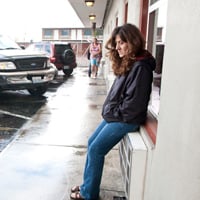
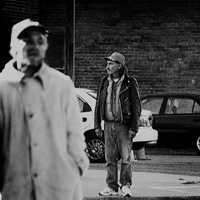
While it has never been popular to say so, as we look at the increasing number of homeless women and children, we must acknowledge that sin is at the root of the crisis.
“Woe to those who call evil good and good evil, who put darkness for light and light for darkness, who put bitter for sweet and sweet for bitter” – Isaiah 5:20.
Important Clarification: I want to be just as clear about what I’m NOT saying here as what I AM saying. I am not saying that every homeless person is homeless because of his or her sin. I am not saying that domestic violence – a huge contributor to family homelessness – is in any way a woman’s fault. I am not saying that homeless people are more sinful than housed people. I am saying that sin plays a starring role in abuse, addiction, criminal activity and family breakdown – all significant contributors to poverty and homelessness.
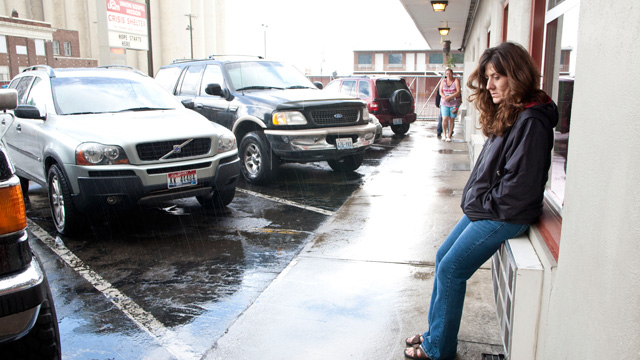
I am not saying that we should blame the victim. I am saying that sin – acts committed against our guests and acts committed by our guests – is at the root of the crisis facing our community.
Here’s a troubling fact: Programs and plans created to help people in poverty must also include strategies to identify and deal with potential abuse. People will steal, lie and cheat the system, and creating methods to prevent that often costs as much as the actual help.
Instead of developing strategies to teach morality, we keep trying to catch people in the act so we can simultaneously lecture them and keep giving them what we think they need. While lip service to accountability is fairly common, in reality, it is very difficult to hold immoral people accountable for their choices.
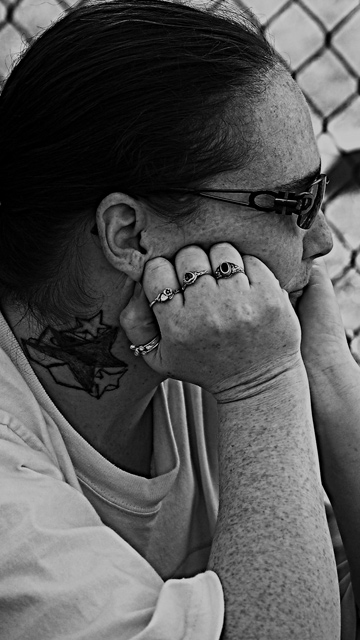
Granted, in the midst of suffering, it feels unkind to discuss the whole concept of sin. Compassion dictates that we offer love first, but true compassion will also include a conversation about reaping and sowing. Jesus says to the woman caught in adultery, “Neither do I condemn you. Now go and sin no more.” (John 8:11) First, he shows compassion. Next, he requires a change of behavior.
Galatians 6:7: “Do not be deceived: God cannot be mocked. A man reaps what he sows.”
If we sin, there are natural consequences that go with that sin. Jesus spoke similar words in John 5 to the man healed by the pool of Bethesda. He actually said more there: “Stop sinning or something worse may happen.”
We live in a society that believes so strongly in tolerance and cheap grace* that we forget sin has consequences. Though she was forgiven by Christ, the woman caught in adultery undoubtedly had other difficulties to face – marital trouble? pregnancy outside of marriage? sexually-transmitted disease? There are countless possibilities for what “worse” could be. Bottom line – if the woman caught in adultery or the man healed by the pool continued to live lives of sin and failed to follow Christ – they would be separated from him forever.
We live in a society that believes so strongly in tolerance and cheap grace that we forget sin has consequences. < Tweet this.
As we work with the poor, we shouldn’t shy away from the topic of sin. Contrary to popular belief, that isn’t the kind or nice thing to do.
The message of grace isn’t that you and I have no sin. The message of grace is that you and I and the people we serve sin every single day, but if we confess our sin, he is faithful and just and will forgive our sin (1 John 1:9). That’s grace. That’s the good news.
Sin has destroyed lives.
God’s grace is powerful enough to redeem them.
Both sides of the message are critical if we are to face the current crisis.
The message of grace is that you and I and the people we serve sin every single day, but if we confess our sin, he is faithful and just. < Tweet this.
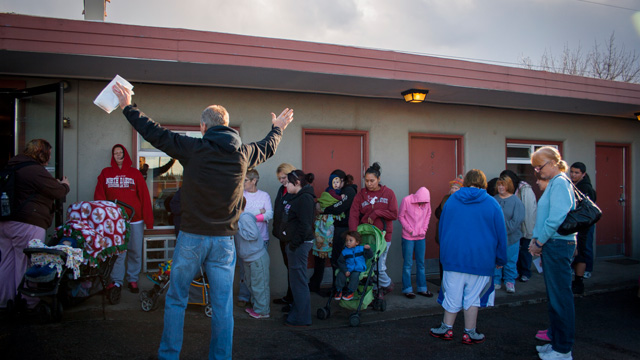
 Author's Note: This was a hard blog to write. The first draft was painful, and working toward something publishable was difficult. It was a struggle because I love these men and women, and talking about sin almost always comes across as judgmental. However, it is with deep love that we call attention to the sin that causes men and women to struggle in life. Before I was in Christ I had no real issue with other people's choices. "Live and let live" seemed like an appropriate motto, but I was blind to the devastation sin was causing in people's lives. Today, my heart breaks over the fallout of those same choices. It is sin that angers me, not the women who come through our doors. Sin is destroying whole families, and the fact that the very people caught in it are often blind to what's happening - that really devastates my heart. - Rich
Author's Note: This was a hard blog to write. The first draft was painful, and working toward something publishable was difficult. It was a struggle because I love these men and women, and talking about sin almost always comes across as judgmental. However, it is with deep love that we call attention to the sin that causes men and women to struggle in life. Before I was in Christ I had no real issue with other people's choices. "Live and let live" seemed like an appropriate motto, but I was blind to the devastation sin was causing in people's lives. Today, my heart breaks over the fallout of those same choices. It is sin that angers me, not the women who come through our doors. Sin is destroying whole families, and the fact that the very people caught in it are often blind to what's happening - that really devastates my heart. - Rich
More posts on the Crisis Shelter:

2 min read
“Let us hold unswervingly to the hope we profess, for He Who promised is faithful…Jesus Christ is the same yesterday, today, and forever.” (Hebrews...

9 min read
To celebrate 75 years of serving the Inland Northwest, we are spending the year remembering our history and the faithfulness that built us and...

2 min read
In 2026, Union Gospel Mission Inland Northwest is approaching our 75th Anniversary! This is a milestone that invites gratitude and reflection, and...

Part 2 in our series on "The Crisis: a troubling reality." Read part 1, Homeless Women: Who Will Belive in Them?

“As one whom his mother comforts, so I will comfort you.” (Isaiah 66:13) For the past ten years, I’ve been teaching the UGM women’s Bible study. I...
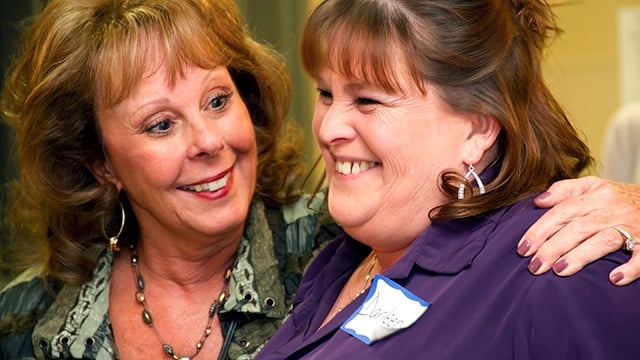
This week, we are celebrating Debi Pauletto, the community relations coordinator at the Center for Women and Children. Debi has worked at UGM for 16...